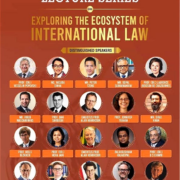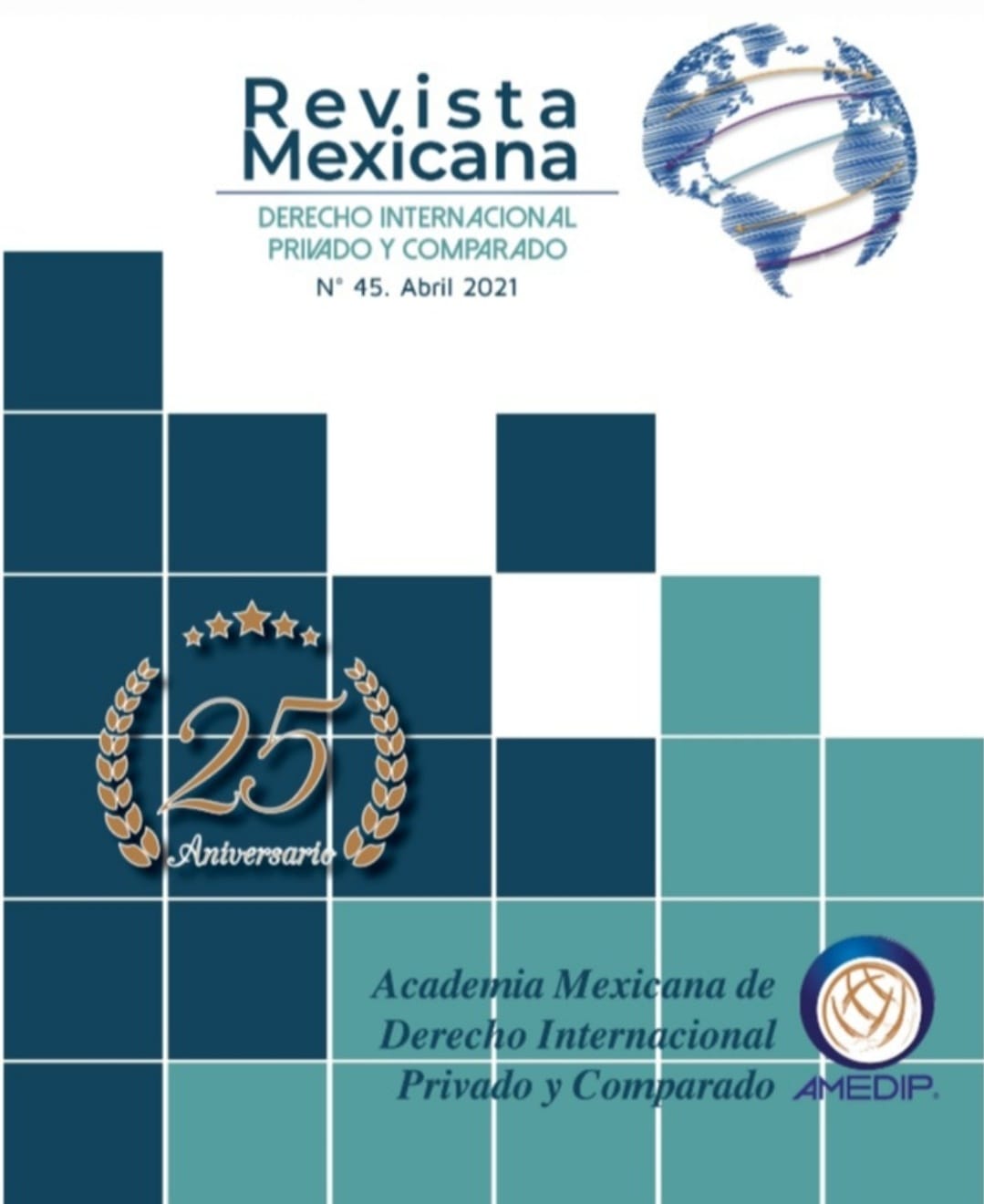By Sarah McKibbin, University of Southern Queensland
Epic Games, the developer of the highly popular and lucrative online video game Fortnite, recently won an appeal against tech juggernaut, Apple, in Australia’s Federal Court.[1] Fortnite is played by over three million Apple iOS users in Australia.[2] In April 2021, Justice Perram awarded Apple a temporary three-month stay of proceedings on the basis of an exclusive foreign choice of court agreement in favour of the courts of the Northern District of California. Despite awarding this stay, Justice Perram was nevertheless ‘distinctly troubled in acceding to’ Apple’s application.[3] Epic appealed to the Full Court.
On 9 July, Justices Middleton, Jagot and Moshinsky found three errors of principle in Justice Perram’s consideration of the ‘strong reasons’ given by Epic for the proceedings to remain in the Federal Court — despite the exclusive foreign choice of court agreement.[4] Exercising its own discretion, the Full Court then found ‘strong reasons’ for the proceedings to remain in the Federal Court, particularly because enforcement of the choice of court agreement would ‘offend the public policy of the forum.’[5] They discerned this policy from various statutory provisions in Australia’s competition law as well as other public policy considerations.[6] The appeal highlights the tension that exists between holding parties to their promises to litigate abroad and countenancing breaches of contract where ‘serious issues of public policy’ are at play.[7]
1 Exclusive Choice of Foreign Court Agreements in Australia
Australians courts will enforce an exclusive choice of court agreement favouring a foreign court either by granting a stay of local proceedings or by awarding damages for breach of contract. The usual approach is for the Australian court to enforce the agreement and grant a stay of proceedings ‘unless strong reasons are shown why it should not.’[8] As Justice Allsop observed in Incitec v Alkimos Shipping Corp, ‘the question is one of the exercise of a discretion in all the circumstances, but recognising that the starting point is the fact that the parties have agreed to litigate elsewhere, and should, absent some strong countervailing circumstances, be held to their bargain.’[9] The burden of demonstrating strong reasons rests on the party resisting the stay.[10] Considerations of inconvenience and procedural differences between jurisdictions are unlikely to be sufficient as strong reasons.[11]
Two categories of strong reasons predominate. The first category is where, as stated in Akai Pty Ltd v The People’s Insurance Co Ltd, enforcement ‘offends the public policy of the forum whether evinced by statute or declared by judicial decision’.[12] This includes the situation ‘where the party commencing proceedings in the face of an exclusive jurisdiction clause seeks to take advantage of what is or may be a mandatory law of the forum’.[13] The prohibition in Australian law against misleading and deceptive conduct is an example.[14] The second category justifying non-enforcement is where litigation in the forum concerns issues beyond the scope of the choice of court agreement or concerns third parties to the agreement.[15] Where third parties are concerned, it is thought that ‘the court should not start with the prima facie disposition in favour of a stay of proceedings’.[16]
2 Factual Background
The successful appeal represents the latest decision in an ongoing international legal battle between Apple and Epic precipitated by Fortnite’s removal from the Apple App Store in August last year. Epic released a software update for Apple iOS devices on 13 August 2020 making the Fortnite’s virtual currency (called V-Bucks) available for purchase through its own website, in addition to Apple’s App Store, at a 20 per cent discount. Any new game downloads from the App Store ‘came equipped with this new feature’.[17] While Fortnite is free to download, Epic’s revenue is generated by players purchasing in-app content, such as dance moves and outfits, through a digital storefront. After the digital storefront takes a commission (usually 30 per cent), Epic receives the net payment.
App developers only have one avenue if they wish to distribute their apps for use on Apple iOS devices: they must use the Apple App Store and Apple’s in-app payment system for in-app purchases from which Apple takes a 30 per cent revenue cut. Epic’s co-founder and CEO Tim Sweeney has singled out Apple and Google for monopolising the market and for their ‘terribly unfair and exploitative’ 30 per cent commission for paid app downloads, in-app purchases and subscriptions.[18] While a 70/30 revenue split has been industry standard for many years, the case for an 88/12 revenue model is building.[19] Sweeney argues that ‘the 30% store tax usually exceeds the entire profits of the developer who built the game that’s sold’.[20]
3 Apple’s App Developer Agreement
Epic’s relationship with Apple is regulated by the Apple Developer Program License Agreement (‘DPLA’) under which Apple is entitled to block the distribution of apps from the iOS App Store ‘if the developer has breached the App Store Review Guidelines’.[21] These Guidelines include the obligation to exclusively use Apple’s in-app payment processing system. Clause 14.10 contains Epic’s contractual agreement with Apple to litigate in the Northern District of California:
Any litigation or other dispute resolution between You and Apple arising out of or relating to this Agreement, the Apple Software, or Your relationship with Apple will take place in the Northern District of California, and You and Apple hereby consent to the personal jurisdiction of and exclusive venue in the state and federal courts within that District with respect any such litigation or dispute resolution.
By introducing a custom payment facility, the August update breached the App Store Review Guidelines. Apple swiftly removed Fortnite from its App Store. There were three consequences of this removal: first, Fortnite could not be downloaded to an Apple device; secondly, previously installed iOS versions of Fortnite could not be updated; and, thirdly, Apple device users could not play against players who had the latest version of Fortnite.[22]
4 The Proceedings
On the same day as Apple removed Fortnite from the App Store, Epic commenced antitrust proceedings in the United States District Court for the Northern District of California, alleging Apple’s ‘monopolisation of certain markets’ in breach of the United States’ Sherman Act and other California legislation. The judgment in the US trial is expected later this year. Epic also sued Apple in United Kingdom, the European Union and Australia on competition grounds. In February, the United Kingdom’s Competition Appeal Tribunal refused permission to serve Epic’s claim on Apple in California because the United Kingdom was not a suitable forum (forum non conveniens).[23] Together with these legal actions, Epic commenced a marketing campaign urging the game’s worldwide fanbase to ‘Join the fight against @AppStore and @Google on social media with #FreeFortnite’.[24] Epic also released a video parodying Apple’s famous 1984 commercial called ‘Nineteen Eighty-Fortnite’.[25]
The Australian proceedings were brought in the Federal Court in November 2020. Epic’s complaint against Apple is the same as in the US, the EU and the UK, but with the addition of a territorial connection, ie developers of apps for use on Australian iOS devices must only distribute their apps through Apple’s Australian App Store and only use Apple’s in-app payment processing system. As a consequence, Epic alleges that Apple has contravened three provisions of Part IV of the Competition and Consumer Act 2010 (Cth) concerning restrictive trade practices and the Australian Consumer Law for unconscionable conduct. In addition to injunctive relief restraining Apple from continuing to engage in restrictive trade practices and unconscionable conduct, Epic seeks ancillary and declaratory relief.
Apple applied for a permanent stay of the Federal Court proceedings, relying on the choice of court agreement in the DPLA and the doctrine of forum non conveniens. Epic unsuccessfully argued that its claims under Australian law did not ‘relate to’ cl 14.10 of the DPLA.[26] More critically, Justice Perram did not think Epic had demonstrated strong reasons. He awarded Apple a temporary three-month stay of proceedings ‘to enable Epic to bring this case in a court in the Northern District of California in accordance with cl 14.10.’[27] Where relevant to the appeal, Justice Perram’s reasoning is discussed below.
5 The Appeal: Three Errors of Principle
The Full Court distilled Epic’s 17 grounds of appeal from Justice Perram’s decision into two main arguments. Only the second argument — turning on the existence of ‘strong grounds’[28] — was required to determine the appeal. Justices Middleton, Jagot and Moshinsky identified three errors of principle in Justice Perram’s evaluation of ‘strong reasons’, enabling them to re-evaluate whether strong reasons existed.
The first error was Justice Perram’s failure to cumulatively weigh up the reasons adduced by Epic that militated against the granting of the stay. Justice Perram had grudgingly granted Apple’s stay application without evaluating the five concerns he had expressed ‘about the nature of proceedings under Part IV which means they should generally be heard in this Court’,[29] as he was required to do. The five concerns were:[30]
- The public interest dimension to injunctive proceedings under the Competition and Consumer Act;
- The ‘far reaching’ effect of the litigation on Australian consumers and Australian app developers as well as the nation’s ‘interest in maintaining the integrity of its own markets’;
- The Federal Court’s exclusive jurisdiction over restrictive trade practices claims;
- ‘[D]icta suggesting that [restrictive trade practices] claims are not arbitrable’; and
- That if the claim in California ‘complex questions of [Australian] competition law will be litigated through the lens of expert evidence’.
The second error was Justice Perram’s ‘failure to recognise juridical disadvantages of proceeding in the US Court’.[31] The judge had accepted that litigating the case in California would be ‘more cumbersome’ since ‘expert evidence about the content of Australian law’ would be needed.[32] There was a risk that a California court ‘might decline to hear the suit on forum non conveniens grounds.’[33] Despite that, he concluded that ‘[a]ny inconvenience flows from the choice of forum clause to which Epic has agreed. It does not sit well in its mouth to complain about the consequences of its own bargain’.[34] However, the Full Court viewed the inapplicability of ‘special remedial provisions’ of the Australian Competition and Consumer Act in the California proceedings as the loss of a legitimate juridical advantage.[35]
The third error concerned a third party to the exclusive jurisdiction clause. In Australian Health & Nutrition Association Ltd v Hive Marketing Group Pty Ltd, Justice Bell observed that the default enforcement position was inapplicable in cases where ‘not all parties to the proceedings are party to an exclusive jurisdiction clause’.[36] Apple Pty Limited, an Australian subsidiary of Apple, was not a party to the DPLA. Yet it was responsible ‘for the distribution of iOS-compatible apps to iOS device users’ within the Australian sub-market in a manner consistent with Apple’s worldwide conduct.[37] Moreover, Epic’s proceedings included claims under the Competition and Consumer Act and the Australian Consumer Law against the Australian subsidiary ‘for conduct undertaken in Australia in connection with arrangements affecting Australian consumers in an Australian sub-market.’[38] In this light, the Full Court rejected Justice Perram’s description of the joinder of Apple Pty Limited as ‘ornamental and ‘parasitic on the claims Epic makes against Apple’.[39]
6 The Appeal: Strong Reasons Re-evaluated
The stay should have been refused. The Full Court found a number of public policy considerations that cumulatively constituted strong reasons not to grant a stay of Epic’s proceedings. The judges discerned ‘a legislative policy that claims pursuant to [the restrictive trade practices law] should be determined in Australia, preferably in the Federal Court’ — although it was not the only court that could hear those claims.[40] Essentially, the adjudication of restrictive trade practices claims in the Federal Court afforded legitimate forensic advantages to Epic — benefits which would be lost if Epic were forced to proceed in California. These benefits included the availability of ‘specialist judges with relevant expertise’ in the Federal Court, the potential for the Australian Competition and Consumer Commission to intervene, and the opportunity for private litigants (as in this case) to ‘develop and clarify the law’.[41] Indeed, the Federal Court has not yet interpreted the misuse of market power provision in the Competition and Consumer Act relied upon by Epic, which came into effect in 2017.[42] The litigation will also impact millions of Australians who play Fortnite and the state of competition in Australian markets.[43]
[1] Epic Games, Inc v Apple Inc [2021] FCAFC 122.
[2] Epic Games, Inc v Apple Inc (Stay Application) [2021] FCA 338, [7] (Perram J).
[3] Ibid, [64] (Perram J).
[4] Epic Games, Inc v Apple Inc (n 1) [48].
[5] Ibid.
[6] Ibid, [90].
[7] Ibid, [97]. See James O’Hara, ‘Strategies for Avoiding a Jurisdiction Clause in International Litigation’ (2020) 94(4) Australian Law Journal 267. Compare Mary Keyes, ‘Jurisdiction under the Hague Choice of Courts Convention: Its Likely Impact on Australian Practice’ (2009) 5(2) Journal of Private International Law 181; Richard Garnett, ‘Jurisdiction Clauses since Akai’ (2013) 87 Australian Law Journal 134; Brooke Adele Marshall and Mary Keyes, ‘Australia’s Accession to the Hague Convention on Choice of Court Agreements’ (2017) 41 Melbourne University Law Review 246.
[8] A Nelson & Co Ltd v Martin & Pleasance Pty Ltd (Stay Application) [2021] FCA 754, [10] (Perram J) (emphasis added). See also Huddart Parker Ltd v Ship ‘Mill Hill’ (1950) 81 CLR 502, 508–9 (Dixon J); The Eleftheria [1970] P 94, 99 (Brandon J); Akai Pty Ltd v People’s Insurance Co Ltd (1996) 188 CLR 418, 427–9 (Dawson and McHugh JJ), 445 (Toohey, Gaudron and Gummow JJ).
[9] Incitec Ltd v Alkimos Shipping Corp (2004) 138 FCR 496, 505 [43].
[10] There was some argument about onus in Epic Games (Stay Application) (n 2) [35]–[40] (Perram J).
[11] Incitec (n 9) [49]; Andrew S Bell, ‘Jurisdiction and Arbitration Agreements in Transnational Contracts: Part I’ (1996) 10 Journal of Contract Law 53, 65. See generally O’Hara (n 7).
[12] (1996) 188 CLR 418, 445 (Toohey, Gaudron and Gummow JJ). See also Marshall and Keyes (n 7) 257.
[13] Australian Health and Nutrition Association Ltd v Hive Marketing Group Pty Ltd (2019) 99 NSWLR 419, 438 [80] (Bell P).
[14] Australian Consumer Law s 18.
[15] Incitec (n 9) 506 [47], [49] (Allsop J); Marshall and Keyes (n 7) 258.
[16] Australian Health (n 13) 423 [1] (Bathurst CJ and Leeming JA), 442 [90] (Bell J).
[17] Epic Games (Stay Application) (n 2) [6] (Perram J).
[18] @TimSweeneyEpic (Twitter, 29 July 2020, 1:29 pm AEDT) <https://twitter.com/TimSweeneyEpic/status/1288315775607078912>.
[19] See, eg, Nick Statt, ‘The 70-30 Revenue Split is Causing a Reckoning in the Game Industry’, protocol (Web Page, 4 May 2021) <https://www.protocol.com/newsletters/gaming/game-industry-70-30-reckoning?rebelltitem=1#rebelltitem1>.
[20] @TimSweeneyEpic (Twitter, 26 June 2019, 10.13 am AEDT) <https://twitter.com/TimSweeneyEpic/status/1143673655794241537>.
[21] Epic Games (n 1) [5].
[22] Epic Games (Stay Application) (n 2) [7].
[23] Epic Games, Inc v Apple Inc [2021] CAT 4.
[24] ‘#FreeFortnite’, Epic Games (Web Page, 13 August 2020) <https://www.epicgames.com/fortnite/en-US/news/freefortnite>.
[25] Fortnite, ‘Nineteen Eighty-Fortnite – #FreeFortnite’ (YouTube, 13 August 2020) <https://youtu.be/euiSHuaw6Q4>.
[26] Epic Games (Stay Application) (n 2) [11]–[12].
[27] Ibid, [66].
[28] Epic Games (n 1) [41], [47].
[29] Ibid, [57].
[30] Epic Games (Stay Application) (n 2) [59]–[63].
[31] Epic Games (n 1) [58].
[32] Epic Games (Stay Application) (n 2) [53].
[33] Ibid, [44].
[34] Ibid, [58].
[35] Epic Games (n 1) [62].
[36] Australian Health (n 13) 442 [90] (Bell P).
[37] Epic Games (n 1) [74].
[38] Ibid, [78].
[39] Ibid.
[40] Ibid, [99]. The Full Court clarified that ‘other Australian courts may determine Pt IV claims, but within a limited compass and for specific reasons’: [116].
[41] Ibid, [104], [107], [122].
[42] Ibid, [107].
[43] Ibid, [97].





